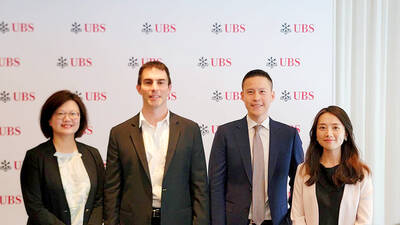Neptune Orient Lines Ltd on Saturday said it is in separate talks with France’s CMA CGM SA and Denmark’s AP Moeller-Maersk A/S on a potential sale of the Singapore container shipping company.
“NOL has a duty to assess all options to maximize shareholder value and improve its competitiveness,” the company said in a statement to Singapore’s stock exchange, adding that the discussions are preliminary and there’s no assurance that a definitive agreement will be reached.
CMA CGM has made a preliminary offer for Neptune Orient, which has a market value of S$2.7 billion (US$1.9 billion), people with the knowledge said earlier, asking not to be identified as the information is private.
Marseille-based CMA CGM is now conducting due diligence, though it has not been granted exclusivity, according to one of the people. Maersk is also in talks about an acquisition of Neptune Orient, though the discussions are less advanced, the people said.
A deal is unlikely to be struck soon, as the slumping shipping sector damps the appetite for aggressive bidding, two of the people said.
Temasek Holdings Pte, the Singapore state investment company that owns 67 percent of Neptune Orient, might not be willing sell its stake at a low price, they said.
The shipping company that helped cement Singapore’s status as a global trade hub is attracting takeover interest after simplifying its structure earlier this year by selling its US$1.2 billion logistics unit.
Neptune Orient, created in 1968 and now Southeast Asia’s largest container line, ran up US$1.2 billion of losses in the last four financial years as sluggish global commerce and overcapacity ate into shipping rates.
The company earlier this year sold its logistics unit, APL Logistics Ltd, to Japan’s Kintetsu World Express Inc for ¥144.2 billion (US$1.2 billion) to focus on boosting its container-line business.
Acquiring Neptune Orient would help consolidate CMA CGM’s No. 3 position in container shipping as it competes with market leaders Maersk and Mediterranean Shipping Co.
Neptune Orient’s APL container unit has a 2.7 percent market share, while CMA CGM controls 8.9 percent of the market, according to data from industry consultant Alphaliner.
Representatives for CMA CGM, Neptune Orient and Temasek declined to comment.
“We’ve always said that we will look at everything that comes up for sale in the market but our base strategy is to grow organically,” Maersk chief executive officer Nils Smedegaard Andersen said in a telephone interview on Friday, declining to comment specifically on whether Maersk is looking at Neptune Orient.
“In general we welcome any consolidation — that would only be healthy for the container line industry,” he said.

TECH TITAN: Pandemic-era demand for semiconductors turbocharged the nation’s GDP per capita to surpass South Korea’s, but it still remains half that of Singapore Taiwan is set to surpass South Korea this year in terms of wealth for the first time in more than two decades, marking a shift in Asia’s economic ranks made possible by the ascent of Taiwan Semiconductor Manufacturing Co (TSMC, 台積電). According to the latest forecasts released on Thursday by the central bank, Taiwan’s GDP is expected to expand 4.55 percent this year, a further upward revision from the 4.45 percent estimate made by the statistics bureau last month. The growth trajectory puts Taiwan on track to exceed South Korea’s GDP per capita — a key measure of living standards — a

Samsung Electronics Co shares jumped 4.47 percent yesterday after reports it has won approval from Nvidia Corp for the use of advanced high-bandwidth memory (HBM) chips, which marks a breakthrough for the South Korean technology leader. The stock closed at 83,500 won in Seoul, the highest since July 31 last year. Yesterday’s gain comes after local media, including the Korea Economic Daily, reported that Samsung’s 12-layer HBM3E product recently passed Nvidia’s qualification tests. That clears the components for use in the artificial intelligence (AI) accelerators essential to the training of AI models from ChatGPT to DeepSeek (深度求索), and finally allows Samsung

READY TO HELP: Should TSMC require assistance, the government would fully cooperate in helping to speed up the establishment of the Chiayi plant, an official said Taiwan Semiconductor Manufacturing Co (TSMC, 台積電) yesterday said its investment plans in Taiwan are “unchanged” amid speculation that the chipmaker might have suspended construction work on its second chip packaging plant in Chiayi County and plans to move equipment arranged for the plant to the US. The Chinese-language Economic Daily News reported earlier yesterday that TSMC had halted the construction of the chip packaging plant, which was scheduled to be completed next year and begin mass production in 2028. TSMC did not directly address whether construction of the plant had halted, but said its investment plans in Taiwan remain “unchanged.” The chipmaker started

LOOKING BRIGHT: Taiwanese tech stocks have been trading at 18 to 19 times earnings, beating the 15 percent long-term average amid AI-driven optimism, an analyst said Taiwan’s economy could expand by as much as 5 percent this year, fueled by its technology manufacturing edge amid a global artificial intelligence (AI) boom, while tariff exemptions on semiconductor products keep the country’s levy burden low despite a headline rate of 20 percent, UBS Investment Bank said yesterday. “Although Washington has imposed a 20 percent tariff on goods from Taiwan, exemptions for semiconductors keep the weighted average low,” UBS senior economist for Asia and China William Deng (鄧維慎) said. The growth momentum is expected to extend into next year, with technology companies’ revenue projected to rise 17 percent, UBS research head